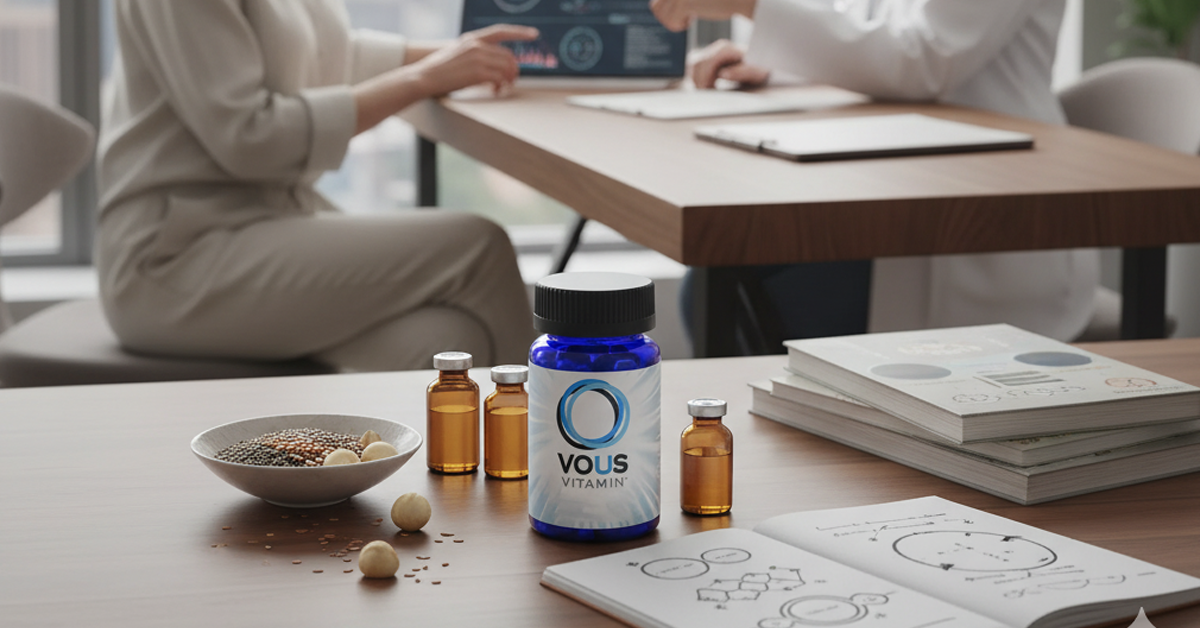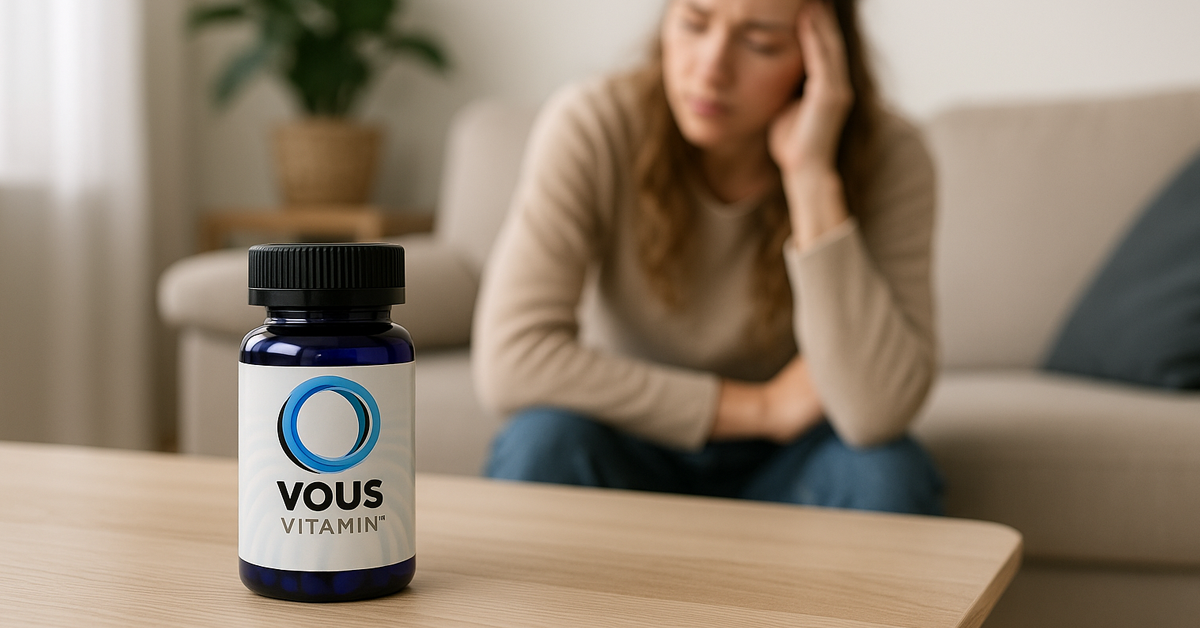

Many women experiencing menopause struggle to find evidence-based approaches to get relief on their symptoms. Wandering the vitamin aisles is an overwhelming experience and not likely to result in selecting those nutrients that are the right blend for your specific profile. Fortunately, there are an emerging set of companies that will run a digital vitamin assessment and recommend specific supplements to address menopausal symptoms.
There’s no place we’d rather center our discussion about hormones than by addressing the question, “What happens when you don’t have enough of them?” The answer is menopause! Once innocuously referred to as “the change,” this normal phase of life can be very dramatic. Or not. The experience varies drastically from person to person. Menopause is, by definition, the cessation of a woman’s normal monthly menstrual period. The average age of menopause is fifty. However, sometimes the perimenopausal years can run for many years before or after this magic age. Thus, we see women from ages forty to sixty dealing with some aspects of menopausal issues. The hallmark of this natural process is the loss of the body’s production of estrogen and progesterone. Once vital to a woman’s fertility and monthly hormonal cycle, their production drops off significantly as the eggs in the ovaries start to peter out. This leads not only to less of these circulating hormones, but also to less testosterone, which the body had previously converted from estrogen (women of course tend to have far lower testosterone levels than men at all times). The good news is monthly bleeding comes to a halt (of course this
is often after several months to years of erratic, unpredictable, and sometimes heavier periods).
The effects of losing these hormones (namely estrogen) can be profound. Hot flashes happen for many. They can range from occasional and mild to severe, frequent, and debilitating. They tend to occur more commonly at night. We hear stories of women who were cold all their lives suddenly shedding the covers at night and wrestling with their partners to turn down the thermostat. Other than the obvious benefit of saving on your heating bill, hot flashes can be highly disruptive and a source of great distress for many women. The effects of these flushing sensations are sometimes even more wide reaching than meets the eye. They can happen at night on a more minor level, where you are not even consciously aware that they are happening. The result can be severely disrupted sleep (again this may not be obvious when it is occurring) and profound fatigue or irritability the next day. Hot flashes (whether you are aware of them or not) are often the cause for some of the common complaints associated with menopause: feeling tired, moody, and irritable; memory loss; and weight gain. The weight gain can be multifactorial, but disrupted sleep does influence weight by disrupting some hormones that are key to weight and metabolism.
The mass market is filled with products built for the lowest common denominator. Vitamin for “all women” or “all women over 50.” These products are watered-down and frequently lack the dosing to make an impact. The best approach is to seek out a personalized vitamin brand that can get you a solution in an affordable and sustainable format so you can start to experience relief.










When women start to experience menopausal issues, they immediately start to investigate what products can provide relief. There are a number of nutritional supplement products


Many women experiencing menopause struggle to find evidence-based approaches to get relief on their symptoms. Wandering the vitamin aisles is an overwhelming experience and not


A vitamin shopper left to their own devices in the vitamin aisle may easily fail to recognize a viable product for their specific conditions. Menopause,


In addition to the diet and exercise suggestions, adding some vitamins and minerals also may be helpful in constipation relief. The problem is that many
| Cookie | Duration | Description |
|---|---|---|
| cookielawinfo-checkbox-analytics | 11 months | This cookie is set by GDPR Cookie Consent plugin. The cookie is used to store the user consent for the cookies in the category "Analytics". |
| cookielawinfo-checkbox-functional | 11 months | The cookie is set by GDPR cookie consent to record the user consent for the cookies in the category "Functional". |
| cookielawinfo-checkbox-necessary | 11 months | This cookie is set by GDPR Cookie Consent plugin. The cookies is used to store the user consent for the cookies in the category "Necessary". |
| cookielawinfo-checkbox-others | 11 months | This cookie is set by GDPR Cookie Consent plugin. The cookie is used to store the user consent for the cookies in the category "Other. |
| cookielawinfo-checkbox-performance | 11 months | This cookie is set by GDPR Cookie Consent plugin. The cookie is used to store the user consent for the cookies in the category "Performance". |
| viewed_cookie_policy | 11 months | The cookie is set by the GDPR Cookie Consent plugin and is used to store whether or not user has consented to the use of cookies. It does not store any personal data. |